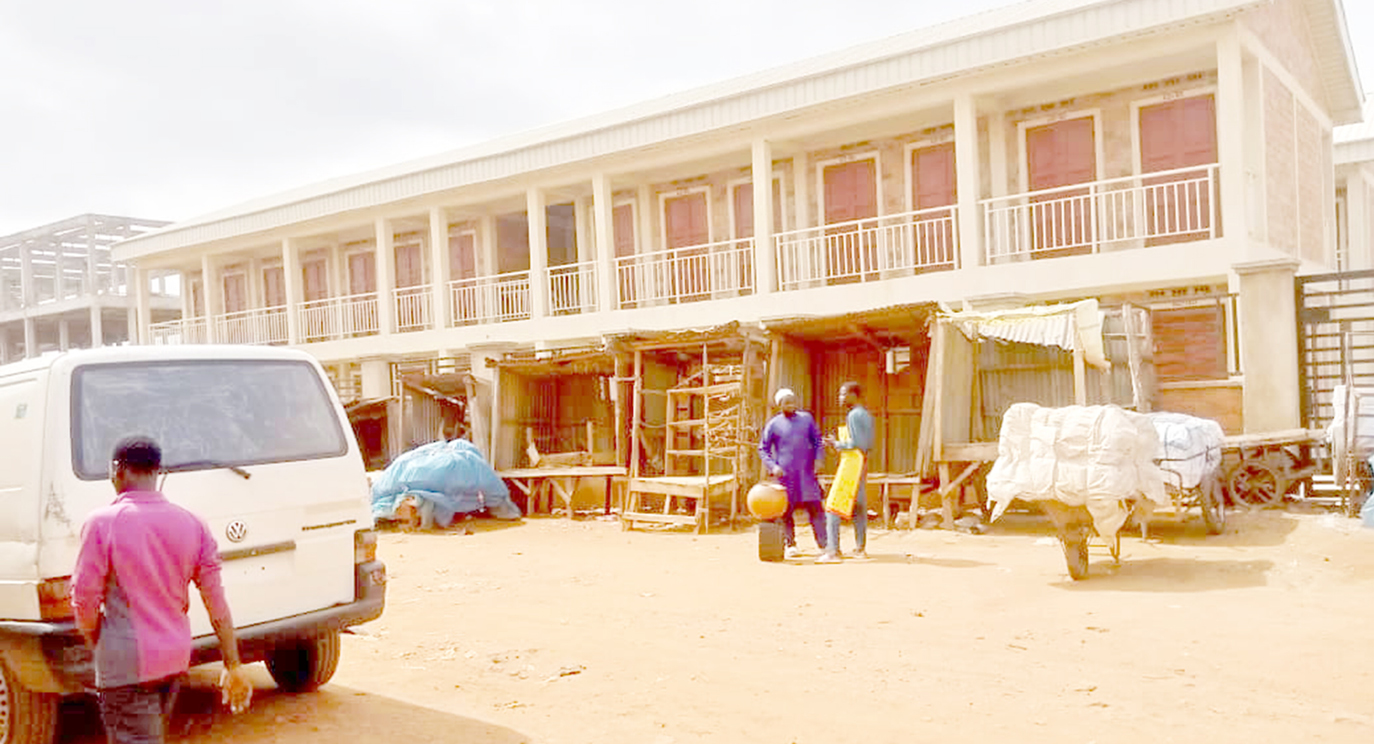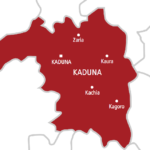Ustaz Nasiru, a provision seller, sat quietly in his newly rented shop in Tudun Wada Community, patiently waiting for his customers. He relocated to this area two years ago after the state government demolished Kasuwar Barci as part of efforts to modernise the old market.
For over four decades, Ustaz Nasiru’s 80-year-old father owned four shops in the old Kasuwar Barci, which Nasiru had looked after as a family business. However, in 2020, the market was demolished, and Nasiru, alongside other traders, had to leave in search of more affordable shops to continue their businesses.
“We are only managing to survive since we moved to this rented shop, but we are grateful to God,” he said with a smile.
Similarly, Shehu Mani, a second-hand clothes (Gwanjo) seller, also owned a shop in the old market but had to relocate to a rented shop near the main market after it was demolished. Like Ustaz Nasiru, Shehu said life has not returned to normal for him.
“We are still waiting for the government to return our shops to us by the time they rebuild the market because, as it is, I cannot afford to pay for a shop,” he lamented.
Kasuwar Barchi, being one of the oldest markets in Tudun Wada, holds significant historical and cultural value within the local community. Its establishment dates back to 1976, and it has played a crucial role in the economic and social fabric of Tudun Wada and the surrounding areas, serving as a central hub for trade and commerce in the community.
Local markets like Kasuwar Barchi have a unique character and charm, attracting both residents and visitors who seek traditional products, local crafts, and a glimpse into the local culture.
The state government, under Nasir El-Rufai’s administration, stated that the expansion and rebuilding of the market was aimed to modernize it and accommodate more traders hence the reason for the demolition.
According to the government, the renovated market will provide opportunities for business owners like Ustaz Nasiru and Shehu Mani, as well as individual traders, to showcase their products and contribute to the local economy.
However, both Shehu Mani and Ustaz Nasiru claimed they do not have enough money to pay for the new shops due to the high cost involved.
Both men, who have wives and children, stated that the price set for each shop is beyond their means, which has resulted in the market remaining empty three years after some parts were rebuilt.
Ustaz Nasiru said, “They claimed the market was opened before the election, but as you can see, the place is empty because traders cannot afford to pay for the shops. This is the truth.”
He further emphasized, “Before the demolition took place, my father owned four shops for decades. But look at where I am now, in a rented shop. The market has not been completed, and it remains empty because traders couldn’t afford to pay for shops.”
According to him, aside from the high cost of the shops, another reason why traders, especially tailors who constituted one-third of the shop owners in the old market, rejected the new market was the designated opening time from 8am to 6pm daily.
“The shops were expensive, and the tailors and designers were not comfortable with the designated opening time of 8am to 6pm,” he said.
He explained that most tailors prefer working at night inside their shops, especially during festive periods.
Daily Trust Saturday also discovered that the prices of the newly built shops varied depending on their location within the market. On the first floor, a 5-square meter shop cost N2m, while on the ground floor, the same size shop cost N2.3m. The second floor offered shops of the same size for N1.75m.
Malam Aminu, a kaftan seller, noted that the majority of tailors and designers, including himself, could not afford to pay for a shop in the new market.
“We used to own shops before the demolition, but since then, I don’t think I can afford to pay for a shop in the new market because I have already spent my capital,” he said.
He also noted that the majority of the shop owners in the market before its demolition were small-scale traders.
He further explained that those willing to pay for the new shops were not even traders in the market. They simply came to pay for the shops and later rent them out to traders.
“However, the high cost of the shops has made it difficult for small-scale traders like myself to rent them, which is why the market remains empty,” he concluded.
Days before the governorship election, the state government through the Market Development and Management Company invited a few traders and handed them keys to shops, urging them to open and resume their businesses while the construction continues in other parts of the market.
During our reporter’s visit to the market, it was observed that most of the shops were empty, with no business activities taking place.
Furthermore, the market is still under construction three years after the demolition, and laborers were seen working within the premises.
Many traders, particularly fabric dealers, have chosen to rent shops within the vicinity of the market, while others have occupied newly built plazas opposite the market for their businesses instead of entering the market.
Alhaji Aminu Kaya-Kaya, one of the market leaders, dismissed the government’s claim of reopening the market as purely political.
He mentioned that besides the high cost of the shops, many traders were also apprehensive about the court judgment that favoured a faction of the traders who challenged the demolition.
Alhaji Aminu Kaya-Kaya himself was among the traders who went to court to contest the market’s demolition. He stated that for them, the cost was not the sole reason for refusing to pay for the shops.
“Some of us can afford the shops at any cost, but the way we were humiliated and treated made us reject the demolition. We cannot simply stand by and watch someone seize our properties; we will not accept that,” he emphasized.
Attempts to contact Tamar Nandul, the Managing Director of Kaduna Market Management and Development Company, were unsuccessful. A text message sent to him seeking clarification on the matter was not responded to as at the time of filing this report.

 Join Daily Trust WhatsApp Community For Quick Access To News and Happenings Around You.
Join Daily Trust WhatsApp Community For Quick Access To News and Happenings Around You.

